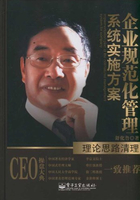Benefactors are thought to love those they have benefited, more than those who have been well treated love those that have treated them well, and this is discussed as though it were paradoxical. Most people think it is because the latter are in the position of debtors and the former of creditors; and therefore as, in the case of loans, debtors wish their creditors did not exist, while creditors actually take care of the safety of their debtors, so it is thought that benefactors wish the objects of their action to exist since they will then get their gratitude, while the beneficiaries take no interest in making this return. Epicharmus would perhaps declare that they say this because they 'look at things on their bad side', but it is quite like human nature; for most people are forgetful, and are more anxious to be well treated than to treat others well. But the cause would seem to be more deeply rooted in the nature of things;the case of those who have lent money is not even analogous. For they have no friendly feeling to their debtors, but only a wish that they may kept safe with a view to what is to be got from them; while those who have done a service to others feel friendship and love for those they have served even if these are not of any use to them and never will be. This is what happens with craftsmen too; every man loves his own handiwork better than he would be loved by it if it came alive; and this happens perhaps most of all with poets; for they have an excessive love for their own poems, doting on them as if they were their children. This is what the position of benefactors is like; for that which they have treated well is their handiwork, and therefore they love this more than the handiwork does its maker. The cause of this is that existence is to all men a thing to be chosen and loved, and that we exist by virtue of activity (i.e. by living and acting), and that the handiwork is in a sense, the producer in activity; he loves his handiwork, therefore, because he loves existence. And this is rooted in the nature of things; for what he is in potentiality, his handiwork manifests in activity.
At the same time to the benefactor that is noble which depends on his action, so that he delights in the object of his action, whereas to the patient there is nothing noble in the agent, but at most something advantageous, and this is less pleasant and lovable. What is pleasant is the activity of the present, the hope of the future, the memory of the past; but most pleasant is that which depends on activity, and similarly this is most lovable. Now for a man who has made something his work remains (for the noble is lasting), but for the person acted on the utility passes away. And the memory of noble things is pleasant, but that of useful things is not likely to be pleasant, or is less so; though the reverse seems true of expectation.
Further, love is like activity, being loved like passivity; and loving and its concomitants are attributes of those who are the more active.
Again, all men love more what they have won by labour; e.g. those who have made their money love it more than those who have inherited it; and to be well treated seems to involve no labour, while to treat others well is a laborious task. These are the reasons, too, why mothers are fonder of their children than fathers; bringing them into the world costs them more pains, and they know better that the children are their own. This last point, too, would seem to apply to benefactors.
8
The question is also debated, whether a man should love himself most, or some one else. People criticize those who love themselves most, and call them self-lovers, using this as an epithet of disgrace, and a bad man seems to do everything for his own sake, and the more so the more wicked he is-and so men reproach him, for instance, with doing nothing of his own accord-while the good man acts for honour's sake, and the more so the better he is, and acts for his friend's sake, and sacrifices his own interest.
But the facts clash with these arguments, and this is not surprising. For men say that one ought to love best one's best friend, and man's best friend is one who wishes well to the object of his wish for his sake, even if no one is to know of it; and these attributes are found most of all in a man's attitude towards himself, and so are all the other attributes by which a friend is defined; for, as we have said, it is from this relation that all the characteristics of friendship have extended to our neighbours. All the proverbs, too, agree with this, e.g. 'a single soul', and 'what friends have is common property', and 'friendship is equality', and 'charity begins at home'; for all these marks will be found most in a man's relation to himself; he is his own best friend and therefore ought to love himself best. It is therefore a reasonable question, which of the two views we should follow; for both are plausible.















